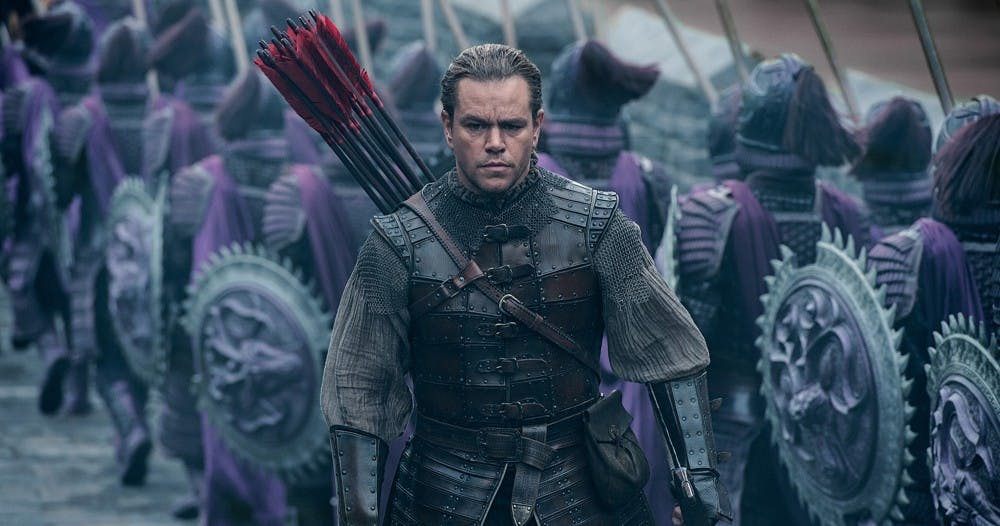Amid a host of whitewashing accusations aimed at action franchises in the last few years, Zhang Yimou’s “The Great Wall” will debut to American audiences on Friday.
Here’s why this particular action movie isn’t as bad as audiences may think.
While “The Great Wall” has been slapped with the same whitewashed label as “Ghost in the Shell” and “Doctor Strange,” its critics are ignoring one major point to the contrary — Matt Damon’s role was written for a white actor.
In adding the American actor to the multi-cultural cast, the director may have made the first steps toward globalizing Asian stories and, hopefully, making more room for nonwhite actors in American cinema.
Instead of appropriating an Asian character and subbing in a white actor, “Great Wall” director Yimou wrote Damon’s lead role for a European character as a way to make a film deeply rooted in Chinese culture accessible to a “world audience.”
“The arrival of his character in our story is an important plot point,” Yimou told Entertainment Weekly shortly after the first trailer debuted in July. “There are five major heroes in our story, and he is one of them — the other four are all Chinese. The collective struggle and sacrifice of these heroes are the emotional heart of our film. As the director of over 20 Chinese language films and the Beijing Olympics, I have not and will not cast a film in a way that was untrue to my artistic vision. I hope when everyone sees the film and is armed with the facts they will agree.”
In the movie, set in a mythical past, Damon and “Game of Thrones” actor Pedro Pascal are introduced as European mercenaries on the hunt for a rare black powder in China. The two are drawn into a centuries-old conflict between man and monster when they reach the Great Wall and find a group of warriors preparing to battle a supernatural threat.
Although Yimou says his casting fit the storyline he wanted, his choices may have bene more strategic than visionary.
Some critics posited the director may not have thought a film with Asian leads would appeal to an American audience or producers. After all, “The Great Wall,” with a budget of $150 million, is the most expensive movie ever shot in China. Historically, movie directors and producers tend not to fund films with nonwhite leads.
Ridley Scott, who directed “Exodus: Gods and Kings” and populated the biblical Egyptian story with white actors, said he avoided casting people from the Middle East because the movie wouldn’t have been funded.
“I can’t mount a film of this budget, where I have to rely on tax rebates in Spain, and say that my lead actor is Mohammad so-and-so from such-and-such,” he told Variety in 2014. “I’m just not going to get it financed. So the question doesn’t even come up.”
Yimou received criticism from television actress Constance Wu, who speaks out frequently about Asian visibility.
“We have to stop perpetuating the racist myth that only a white man can save the world,” she wrote on Twitter. “Our heroes don’t look like Matt Damon.”
According to early reviews by Variety and the Hollywood Reporter, Yimou’s intentions, good as they may have been, can’t rescue the movie entirely.
While the inclusion of Asian and Western characters might appeal to a global audience, an uninspired plot and storytelling may not make it the American success Yimou likely hoped for, Variety writer Maggie Lee wrote.
Although much of the cast is Chinese, Damon is still the one to save the day.
Yimou may have hit on something — a way to work Chinese characters and storylines into an entertainment sector that clearly prefers white narratives — with “The Great Wall.”
While the movie may not solve all of the problems with Hollywood’s treatment of Asian characters and actors, it’s not making things worse, either.




